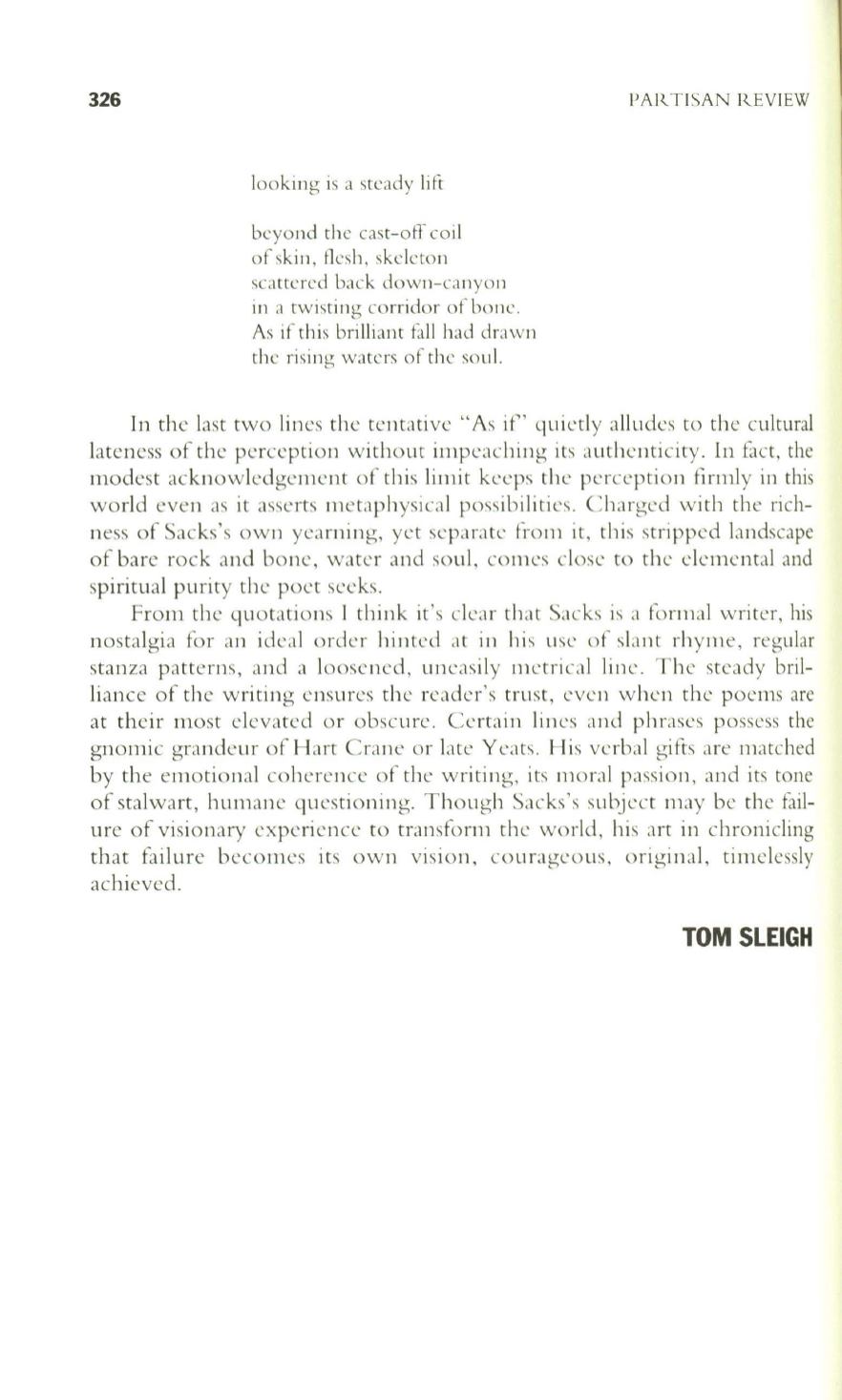
326
looking is a steady lift
beyond the cast-off coil
of ski n, fle sh, skeleton
scatte red back down-canyon
in a twisting corridor of bone.
As if this brilliant fall had drawn
the rising waters of the soul.
PARTISAN REVIEW
In
the last two lines the tentative " As if" quietly alludes to the cultural
lateness ofthc pcrccption without impeaching its authellticity.
In
fact, the
modest acknowledgement of this limit keeps the perception firmly
111
this
world cven as it asserts metaphysIcal possibilities. Charged with thc rich–
ness of Sacks's own yearning, yet separate from it, this strippcd landscape
of bare rock and bone, watcr and soul, comes close to the elemcntal and
spiritual purity the poet seeks.
From the quotations
I
think it 's clear that Sacks is a formal writer, his
nostalgia for an ideal order hintcd at in his use of slant rhyme, regular
stanza patterns, and a loosened, uneasily mctrical line. The steady bril–
liance of the writing ensures the reader's trust, even when the pocms are
at their most elevated or obscurc. Certain lines and phrases possess the
gnomic grandeur of Hart Crane or late Yeats. His verbal gifts are matched
by the emotional coherence of the writillg, its moral passioll, and its tone
of stalwart, humane questioning. Though Sacks's subject may be the fail–
ure of visionary expcrience to transform the world, his art in chroJ1lcling
that failure becomes its own vision, couragcous, onginal, timelessly
achieved.
TOM SLEIGH


